The Scovill & Adams Co., Waterbury, CT & New Haven, CT
Albion Variation 3
6.5 x
8.5"
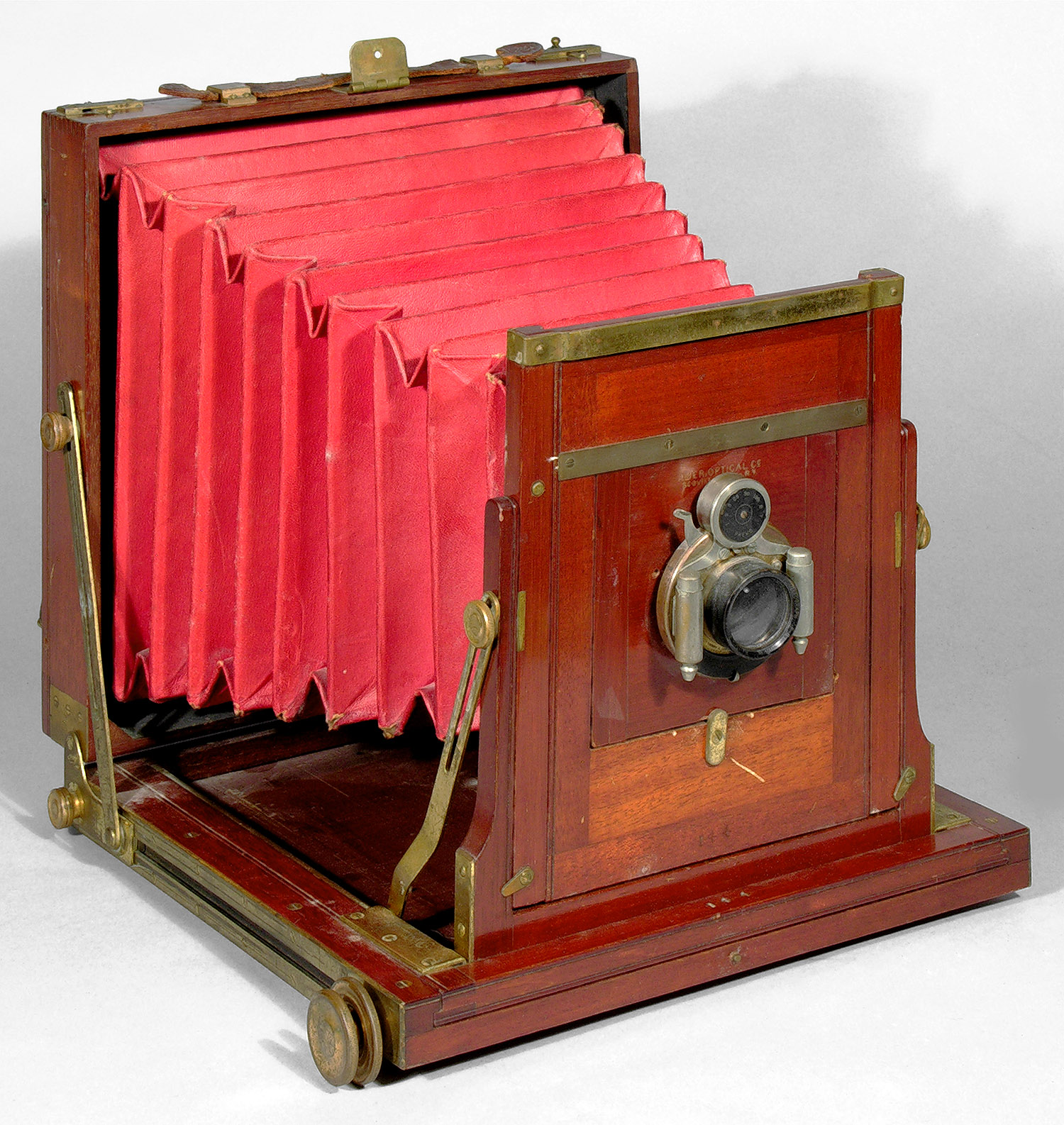
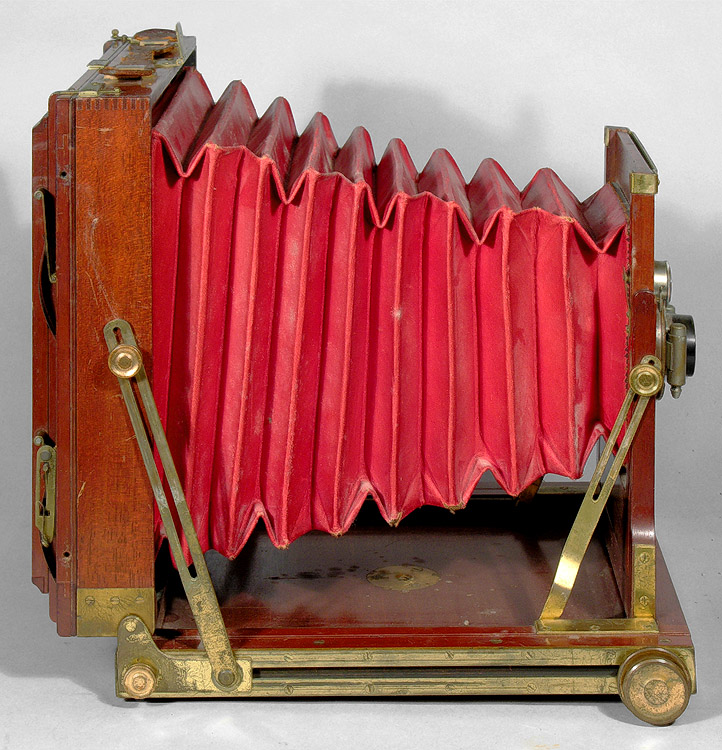
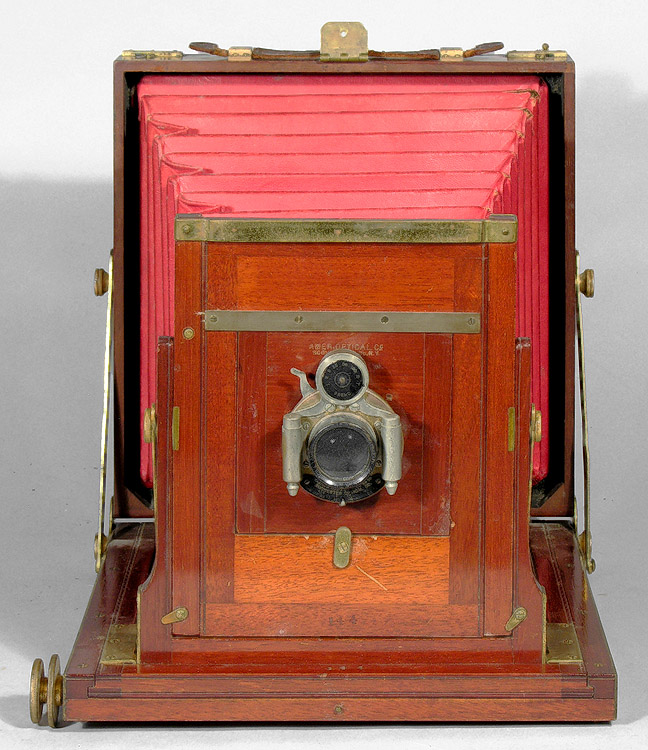
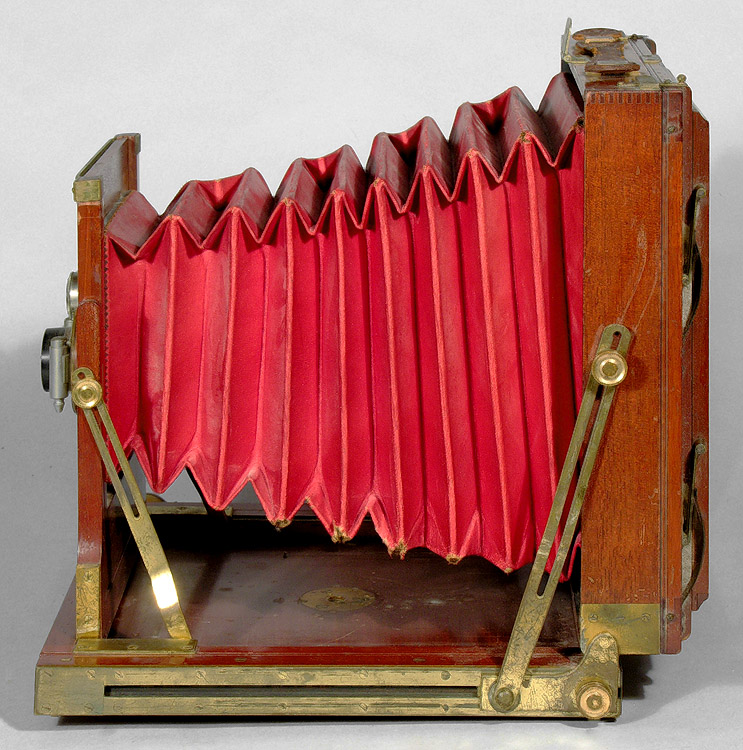
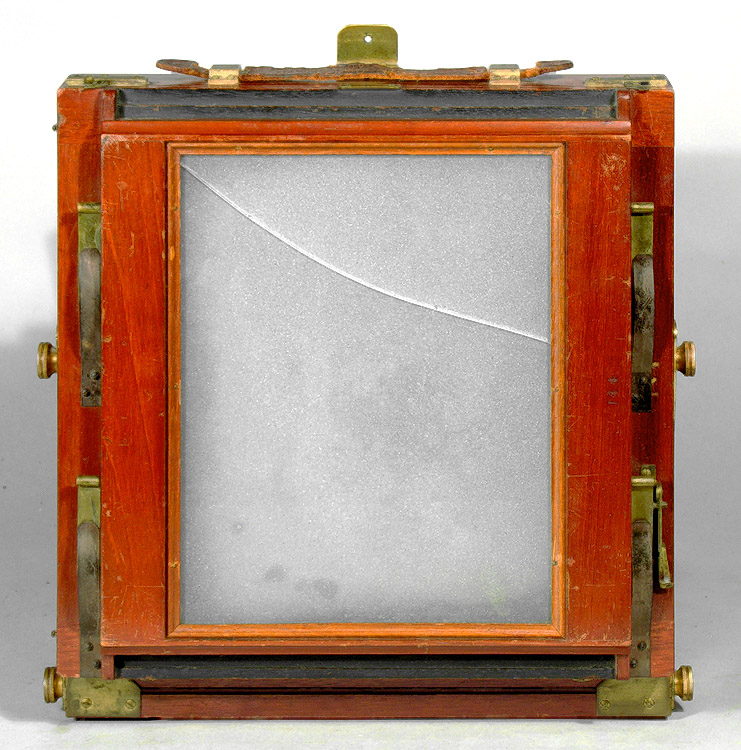
Manufacturer:
The Scovill & Adams Co.
Date Introduced: - ; Years Manufactured:
c.1897
Construction: telescoping bed focus
via rack and pinion (gear tracks hidden); single front and double
back swing; reversing by removable back
Materials: mahogany body; mahogany bed;
black fabric bellows; brass hardware
Sizes Offered: #550=4¼x6½;
#551=5x7; #552=5x8; #553=6½x8½;
#554=8x10
Notes:
The Albion View Camera is an English Compact style of camera - hence the name Albion, from the oldest (and Greek) name for the island of England. English Compact refers to the clamshell-like way the camera folds up, which was a design made by a large number of manufacturers in the United Kingdom. The Albion Variation 1 even has a flip-up back and English-style plate holders, the insertion of which could be described as slide and interlock, common for cameras manufactured in the United Kingdom, but rare in the United States. The only thing that reveals an American source in the camera above is the typical Scovill clips that secure the removable back.
It is a high end camera for Scovill - normally, one would expect such a French-polished, decorated brass model to have been made by the American Optical Co., Scovill's high-end manufactory, but Albions were always advertised as Scovill product. The actual factory of origin is not known.
Albion Variation 1.0 has only a small amount of brass hardware on the side of the base/bed. It has a flip-up back, and English-style plate holders, the insertion of which could be described as slide and interlock. The holders fit into the back similarly to a tongue and groove joint.
Albion Variation 1.1 is identical to the Variation 1.0 except that it has all nickel-plated hardware. Scovill catalogs do not appear to say whether the hardware is brass or nickel-plated.
Albion Variation 2.0 has full length brass hardware on the side of the base/bed. Inasmuch as the above camera is marked Scovill Mfg. Co. and one of the observed Variation 2 cameras is marked Scovill & Adams Co. (the successor to Scovill Mfg. Co.), Variation 2 is though to represent a later version than Variation 1, being an improved version having a brass-reinforced side. In the 1886 Queen catalog reference, a 4¼x5½" size is offered without lens on pages 84-85, and with a lens for bicycle use on page 77 as The Wheelman's Perfection Photographic Outfit. Introduced: not in the April 1887 catalog, but in the Sep. 1888 catalog.
Albion Variation 3.0 domesticates the model for American use. The built-in tripod head has been replaced by a tripod screw hole of standard size and thread pitch. Variation 3 also continues the full length brass hardware along the base/bed, as in Variation 2.The back is now a four-spring-type for American plate holders:
The American Optical/Scovill & Adams
Co. Four Spring Back
This back consists of a ground
glass frame connected to the back of the rear standard using four
springs, one in each corner, and each about 2-3 inches long. As
One end of each spring is tightly screwed to the rear standard, while
the other end applies pressure onto the middle of a hinge made of sheet
brass about 2 inches long, which is attached, one end to the ground
glass and the other to the rear standard, via round-head wood screws
long enough to act as axles. Three of the corners appear as in the
left hand photo below. The fourth corner contains the spring, but
also an extra bit of hardware attached to the sheet brass that catches
in an open position on a post. This is shown in the right hand
photo below.

This type back found on a number of cameras in this
collection, including: A similar back is found on the 1)
Scovill & Adams labeled
Acme Reversible Back View Camera Variation 3, 2)
unlabeled
Albion Variation 3, 3)
American Optical, Scovill & Adams Co., Prop'rs
labeled Compact View Variation 2 or Irving View Variation 2,
4) American Optical,
Scovill & Adams Co., Prop'rs labeled Irving View Variation 1.(known
to have been introduced in March, 1892), 5)
Scovill & Adams labeled
St. Louis View Camera Variation 3, and 6)
Star View Camera
(introduced 1890) - one example labeled
The Scovill & Adams Co., the other example labeled
American Optical Co., Scovill & Adams Co.,
Prop'rs).
From the example cameras from six models that have four
spring backs, we find that all but one camera (and that one is unlabeled
and so indeterminate) are labeled and thus can be dated from when
The Scovill & Adams Co. were
proprietors of the American Optical Co.,
that is, 1889-c.1899. It would therefore appear that the four
spring back was introduced approximately when
Scovill Mfg. Co. changed to
The Scovill & Adams Co.
in 1889. The four spring design was patented in
1889 (granted to Scovill Mfg. Co. (W.H. Fuller, assignor), #407587, 23
Jul 1889), but, unlike most of their patents, the patent information is
not stamped into the wood or otherwise appear on cameras using the
patent.
Back to American Optical Co. / Scovill Mfg. Co. (alphabetical)
